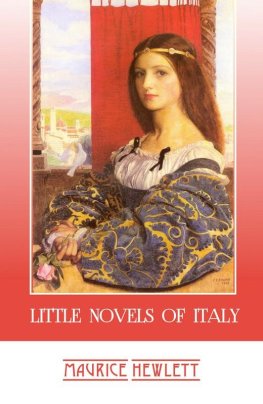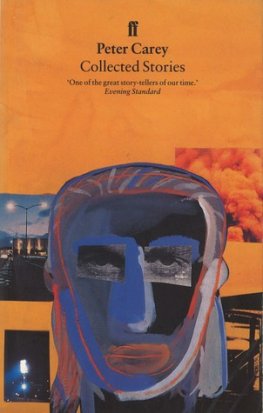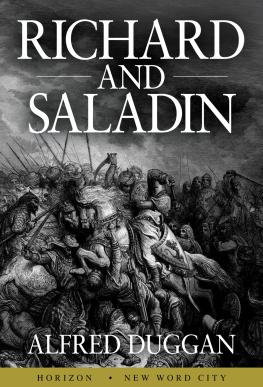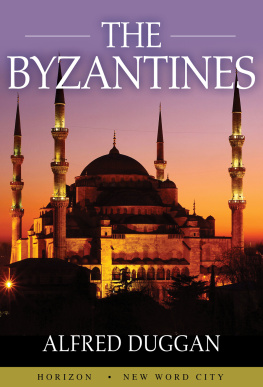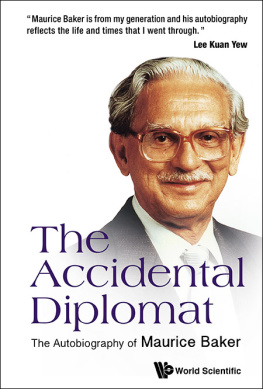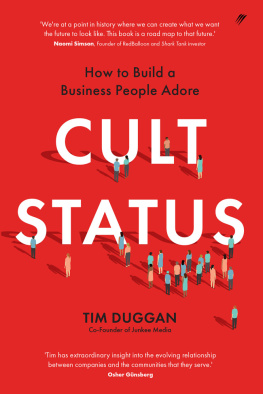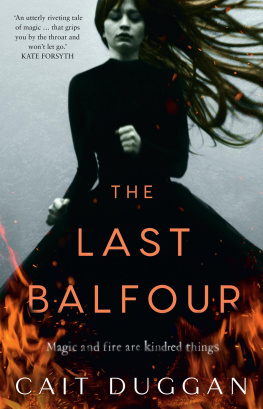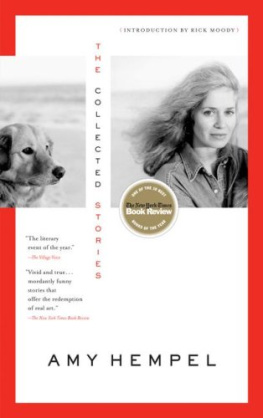Maurice Duggan - Collected Stories
Here you can read online Maurice Duggan - Collected Stories full text of the book (entire story) in english for free. Download pdf and epub, get meaning, cover and reviews about this ebook. year: 1981, publisher: Auckland University Press, genre: Detective and thriller. Description of the work, (preface) as well as reviews are available. Best literature library LitArk.com created for fans of good reading and offers a wide selection of genres:
Romance novel
Science fiction
Adventure
Detective
Science
History
Home and family
Prose
Art
Politics
Computer
Non-fiction
Religion
Business
Children
Humor
Choose a favorite category and find really read worthwhile books. Enjoy immersion in the world of imagination, feel the emotions of the characters or learn something new for yourself, make an fascinating discovery.

- Book:Collected Stories
- Author:
- Publisher:Auckland University Press
- Genre:
- Year:1981
- Rating:4 / 5
- Favourites:Add to favourites
- Your mark:
- 80
- 1
- 2
- 3
- 4
- 5
Collected Stories: summary, description and annotation
We offer to read an annotation, description, summary or preface (depends on what the author of the book "Collected Stories" wrote himself). If you haven't found the necessary information about the book — write in the comments, we will try to find it.
Collected Stories — read online for free the complete book (whole text) full work
Below is the text of the book, divided by pages. System saving the place of the last page read, allows you to conveniently read the book "Collected Stories" online for free, without having to search again every time where you left off. Put a bookmark, and you can go to the page where you finished reading at any time.
Font size:
Interval:
Bookmark:
When Maurice Duggan (1922-74) began writing, towards the end of the Second World War, New Zealand short stories tended to portray ordinary people in their own inarticulate idiom. Duggan erupted into this scene flourishing a mannered though vigorous elegance of style and an extensive vocabulary.
In later years this aspect of Duggan seemed less singular, although as a stylist he remained unsurpassed. It then became steadily clearer that the variety and panache of his language was matched by his insight into the characters he was creating.
In the thirty years of his writing life he worked slowly and seldom beyond the limits of the short-story from; but gathered here the full opus is impressive in its bulk as well as in its quality.
C. K. Stead, Professor of English at the University of Auckland and himself a poet, novelist, and critic, has collected and edited the volume and provided a biographical and critical introduction.
NEW ZEALAND FICTION
General Editor Bill Pearson
Collected Stories ofc Maurice Duggan
Maurice Duggan
Edited and Introduced by
C. K. STEAD

Barbara Duggan 1981
Introduction and Notes C. K. Stead 1981
First Published 1981
This ebook edition 2013
eISBN 978 1 86940 651 6
This book has been published with the assistance of a grant from the New Zealand Literary Fund
IF I HAVE SUCCEEDED, as I think I have, in tracking down all of Maurice Duggans published stories, there were exactly thirty of them in thirty years (1945-75, dating them by their first appearance in print), twenty collected into his three published books, ten uncollected. The symmetry is misleading if it suggests a regular, plodding, dependable output, one story per year, which was not of course the way it happened. On the other hand, although Duggans development was erratic and uncertain, beset by personal as well as by stylistic problems, he was fundamentally an orderly and methodical worker. There was always a tidiness, a symmetry, to his labours, so the pattern, however accidental, seems not inappropriate. And there is no unpublished fiction (apart from the unfinished novel, Miss Bratby, and a late fragment entitled Visiting Aunt Beth) because Duggan destroyed it all. When one writes about Duggan one writes essentially about what went into print.
Maurice Duggan was born in Auckland in 1922 and began writing at the age of nineteen, perhaps partly in compensation for the life of action which osteomyelitis and subsequent amputation of a leg denied himaction in the early 1940s and at the age Duggan then was meaning of course the war, active service overseas. Though nothing gave him more satisfaction or contentment than writing, it never came easilycould not, because the demands he made upon himself were so large. In a letter undated but probably written in 1948, he told his mentor, Frank Sargeson, the vast gap between what I say and what I want even my conversation to mean is something that worries me. Words could too easily be a substitute for perception and observation, drawing too much attention to themselves. He learned (as he reflected in 1966, looking back on his early years as a writer) that he had to find a subject which moved me strongly enough to force me away from what had become a habit of rhetoric. If it was to be strong it had to be simple; the language must be a focusing glass and not, as had up to now been the case, a sort of bejewelled and empty casket.
Duggans other problem was that he was not in the ordinary sense a story teller. In conversation he was fond of quoting E. M. Forsters Yesoh dear yesthe novel tells a story. But narrative is not only a carrot to draw the reader on. It is also for the writer a guiding hand, a determinant of what details are relevant and what are not. It is the desire to get nearer to life as it really is that makes the writer wish to shed it altogether, but the writer who dispenses with it is like the sailor who navigates without charts or instruments. He may make exciting discoveriesor he may simply lose his way.
Finally, and not unrelated to the question of narrative, there is the problem of length. That there is something called a novel, distinct from something shorter called a novella, distinct again from the short story, which in turn is not to be confused with a sketchthese are artificial distinctions imposed largely by the conventions of publishing. Most periodicals which publish fiction can use a short story but not a novellawhich is to say ten pages but not forty. Publishers want novels, but what is the right length varies from one period to another according to the economics of book publishing. For the writer, on the other hand, there is the fiction he wants to write, and its proper length is determined internally. Like Katherine Mansfield, Duggan was always hoping to complete and publish a novel. Like her, he never succeeded, and the failure can be seen in both cases as a kind of artistic scrupulousness.
Style, narrative, lengththese were Duggans problems, I think, from his earliest to his latest work. They are not matters which worry the writer who is content to repeat the patterns and idioms laid down in the market place and looked for by undemanding readers. But they are the fundamental problems of fiction if it is to be practised as a conscious art; and it is his conscious wrestling with them that makes Duggan something of a writers writer.
Although Duggan said in 1966 that the eight or nine pieces he had published before those that went into his first book, Immanuels Land(1956), were juvenilia which deserved their deep obscurity in discontinued publications, a story exhibiting the habit of rhetoric he spoke of in his Beginnings article, and the Conversation Piece published in 1947 in which he guys Hemingway in a Hemingway style. Those nine stories show a slow and painstaking exploration of the fictional mode leading towards Six Place Names and a Girl, his tenth published piece, the first to go into Landfall, the earliest to be collected, which he clearly saw as a break-through because it taught him that in order for the language to be simplified, the subject had to be close to him. It was perhaps less a story than a prose celebration of a topography and a time that, in rediscovery and re-creation, moved me strongly enough to force me away from what had become a habit of rhetoric.
Perhaps less a story than a prose celebration: there Duggan describes a good deal of his own fiction at its best. Six Place Names also taught him that there was no need to push the material falsely into the shape of a story. Commending a review of Sargesons in December 1950 he wrote in a letter the Lawrence quote I like, especially that about no consecutive thread. Only the laconic courage of experience. That has always been my difficulty, solved in part by the Place Names, the problem of hanging whatever it is on the conventional peg, finding the machinery. Six Place Names , it is worth noting, is his first use of an experience which was re-used in Along Rideout Road that Summer.
It seemed, then, that the material had to be in some way autobiographical if he was to achieve clarity of style, and it was this recognition that governed his writing during his two years in England when he wrote most of the stories in Immanuels Land. Like Mansfield, Duggan wrote some of his best fiction by using childhood in retrospect, the focus of a distant recall providing a principle of limitation, imposing shape. Like her he soon saw the possibility that such pieces, linked, might make a novel; and like her he had to recognize that to force the linkage would be to impose something artificial. His Lenihans, like her Burnells, compose a fictional world, the stories connected yet discrete. Brief pieces like A Small Story and Race Day show Duggans earliest use of this family material. A longer story like Chapter survives I think (hence the title and the lack of an enclosing focus) from the first of at least two attempts to make a Lenihan novel of prefabricated sections. Chapter was in draft as early as 1951, but it appears first in print in 1955, signifying, I suspect, the abandonment in that year of plans for a novel, and thus finally releasing sufficient completed material to permit the publication of the first collection of stories which duly appeared in 1956.
Next pageFont size:
Interval:
Bookmark:
Similar books «Collected Stories»
Look at similar books to Collected Stories. We have selected literature similar in name and meaning in the hope of providing readers with more options to find new, interesting, not yet read works.
Discussion, reviews of the book Collected Stories and just readers' own opinions. Leave your comments, write what you think about the work, its meaning or the main characters. Specify what exactly you liked and what you didn't like, and why you think so.

